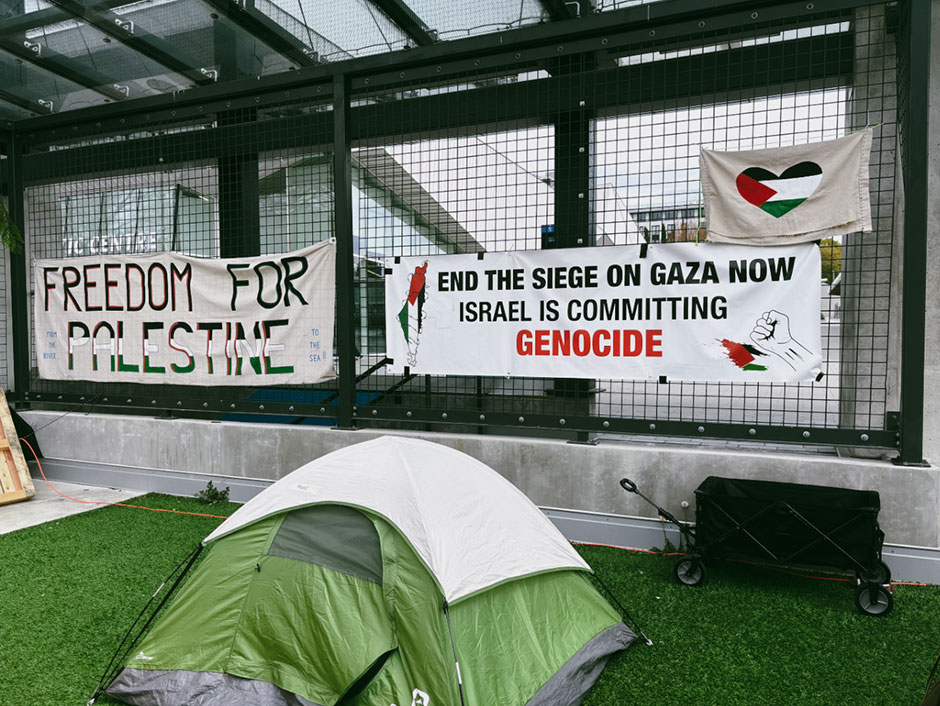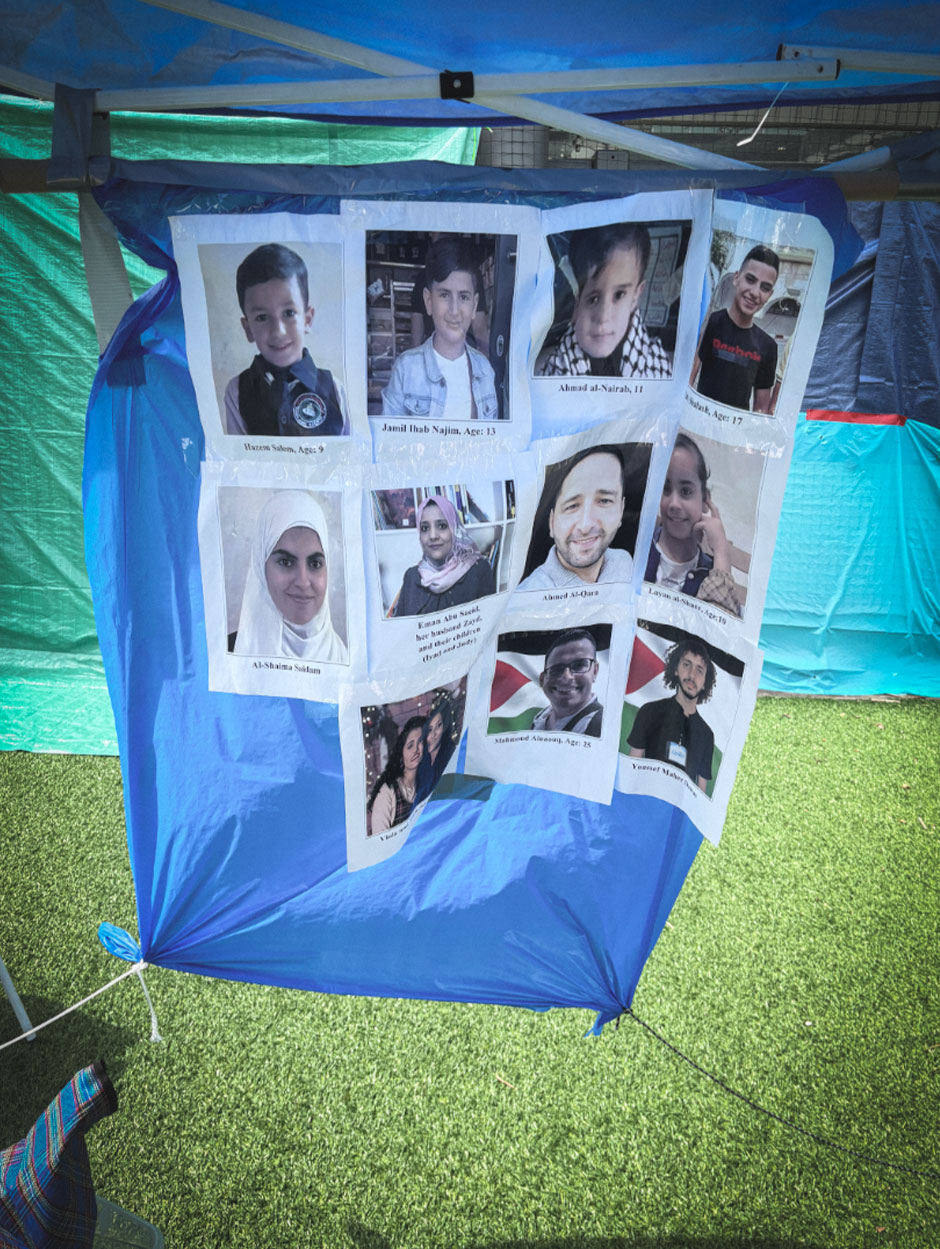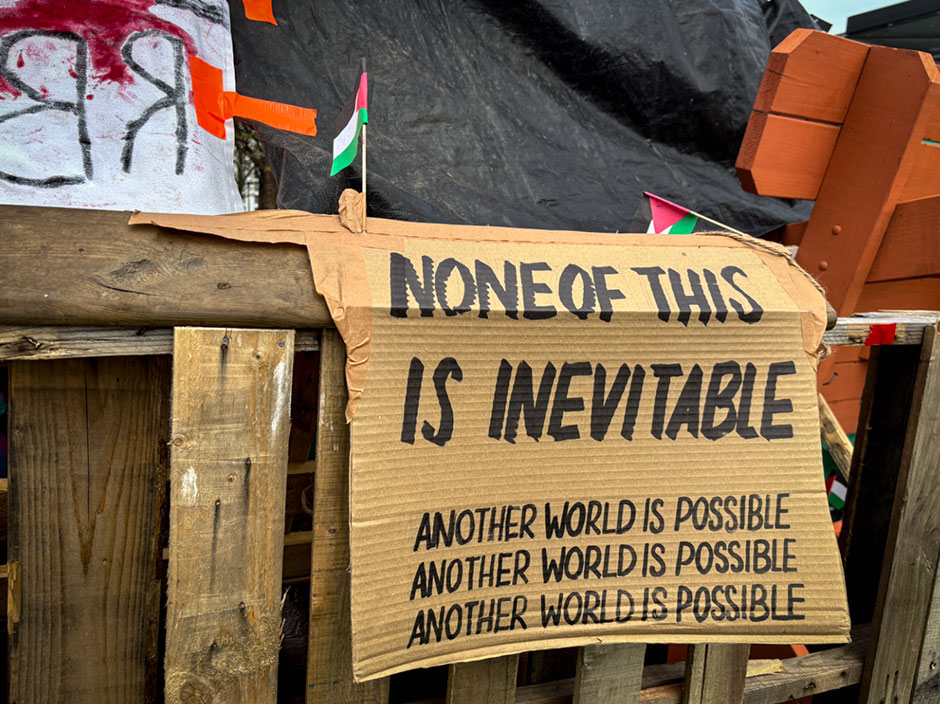
Why Students Are Setting Up Encampments in Support of Palestine at Universities Across British Columbia
Pro-Palestine encampments are spreading across BC university campuses
Over the last week, students at universities in British Columbia have set up encampments in support of Gaza amid ongoing bombardments carried out by Israeli Prime Minister Benjamin Netanyahu’s right-wing coalition government.
Students at the University of British Columbia joined students at McGill University in Montréal as the first two Canadian universities to set up encampments following growing solidarity protests in the United States and globally to bring attention to Israel’s attack on Gaza, which has now extended into Rafah – the last safe refuge for displaced Palestinians.

Photo: Rumneek Johal (PressProgress)
In February, Canada joined other countries in warning Netanyahu’s government that an attack on Rafah would be “catastrophic” given “1.5 million Palestinians are taking refuge in the area.”
Students have laid out a number of demands, including calls for UBC’s “divestment from Israel’s settler colonial occupation,” participation in a “global academic boycott” of Israeli universities, demands to “end to the genocide in Gaza” and also “keep police presence off campus.”
“Students and the world cannot sit in silence while an institution supposedly based in knowledge and education fuels war crimes,” a statement from UBC students said.
UBC students began setting-up their encampment at 5 AM last week, in hopes of drawing attention to their demands of the university administration, but also more importantly, to the plight of Palestinians in Gaza, who have continued to endure attacks for over seven months.
“The purpose is for all of us to be in solidarity with Palestine and Gaza and to demand divestment from the University for them to end all of their investments in companies complicit in Israel’s genocide and occupation of Palestine,” Juno, a representative for the People’s University of Gaza at UBC told PressProgress.

Photo: Rumneek Johal (PressProgress)
Students say UBC’s administration has remained silent in response to the encampment, but UBC security issued a statement citing concerns for safety.
Juno disagrees, pointing out that the atmosphere at the encampment is positive and rooted in community.
“As you can see, there is safety created by us as a community,” Juno explained. “We ensure that everyone who is coming in is agreeing to our community agreements that keep us all safe. There are dogs and kids and families that come through here.”
“There is such a beautiful sense of a community that we have built together. We are for the first time able to build a community that is what we would like to see in the future for how we would want to live in a kind of community that is supportive of Palestine.”

Photo: Rumneek Johal (PressProgress)
The group is calling out the university for hypocrisy when it comes to taking a stand regarding the bombardment of Palestine.
“We really see hypocrisy when it comes to our demands which are really quite simple and moral. Our University should not be investing in companies like weapons manufacturers,” Juno added.
In 2022, UBC invested more than $66 Million in firms that are “active agents in the illegal settlement enterprise in the occupied West Bank and the ongoing genocide of Palestinians in Gaza.”
“When we are comparing it to the University’s reaction to the Russia-Ukraine war, the UBC Senate voted to end UBC’s academic ties with Russian universities, they immediately put out a statement in support of Ukraine and they even put out courses about Ukrainian history, while we see the response when it comes to Palestine and Gaza be completely different. We rarely even see the word Palestine used in any of their statements,” Juno said.
“What is neutral about us continuing to invest in weapons manufacturers and companies that are only promoting genocide? There’s nothing neutral about that.”

Photo: Rumneek Johal (PressProgress)
Last week, the Jewish Faculty Network at UBC issued a statement in solidarity with students’ peaceful protests, stating that they “strongly support the rights of the UBC students in the encampment to peacefully protest in solidarity with Palestine.”
“As Jews, we are appalled by the death, destruction, and displacement that Israel has brought upon the people of Gaza, including the killing of more than 30,000 people, nearly half of whom were children, and the destruction of the healthcare system,” the statement reads. “As academics, we are shocked by the obliteration of all universities in Gaza.”
“We reject the misleading notion that these protests, or other protests against Israel, are inherently antisemitic,” the Network’s statement adds, describing it as a “bad-faith tactic that has been used to repress critics of Israel, including many Jewish people like ourselves.”

Photo: Rumneek Johal (PressProgress)
Students at the University of Victoria also set-up an encampment in support of Palestine last week, which still continues to grow.
UVic students have a similar list of demands that they hope their administration will respond to, including divestment from companies contributing to “the genocide of the Palestinian people,” support the boycott, divestment and sanctioning of Israel, to condemn genocide and ethnic cleansing of Palestinian people; affirm the rights of Palestinian people; and keep police off campus.
“We have been voicing our demands to the president here Kevin Hall for the past seven months and we have not received appropriate (response to) the issue. It hasn’t been called a genocide, he’s been very neutral on the topic,” Mars, a representative for the encampment at UVic told PressProgress.
Mars added that UVic is investing directly in “companies benefiting from genocide.”
“The University of Victoria as is connected to companies that contribute to and benefits from the genocide of the Palestinian people. It is our money that’s being invested into this. We don’t have a choice where that money is going.”
“Theres a genocide happening and it needs to stop.”
Our journalism is powered by readers like you.
We’re an award-winning non-profit news organization that covers topics like social and economic inequality, big business and labour, and right-wing extremism.
Help us build so we can bring to light stories that don’t get the attention they deserve from Canada’s big corporate media outlets.
Donate



